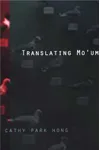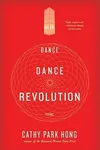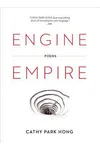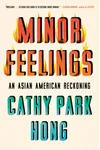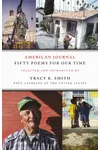Picture a Korean-American poet weaving words into a vibrant tapestry of identity and rebellion—meet Cathy Park Hong! With her genre-bending poetry and searing prose, Hong has redefined contemporary literature, tackling the Asian American experience with wit and courage. Her works, like Dance Dance Revolution and Minor Feelings: An Asian American Reckoning, pulse with innovation, blending languages and narratives to challenge how we see race and culture.
Born to Korean immigrants, Hong’s journey from a Los Angeles childhood to literary stardom is as compelling as her writing. Her fearless voice and advocacy have earned her a spot on TIME’s 100 Most Influential People list, making her a beacon for writers and readers alike.
The Making of Cathy Park Hong
Born on August 7, 1976, in Los Angeles, Cathy Park Hong grew up in a bilingual home, navigating the complexities of Korean and American identities. Her childhood, marked by a sense of cultural invisibility, fueled her passion for writing. At Oberlin College, she found a creative spark among politically minded peers and mentors like poet Myung Mi Kim. Later, at the Iowa Writers’ Workshop, Hong honed her craft, though she grappled with pressures to erase race from her work. These experiences shaped her bold, unapologetic voice.
Before her literary breakthrough, Hong worked eclectic jobs—fact-checker, barista, even aromatherapy salesperson—while publishing poems in journals like The Paris Review. Her persistence paid off, launching a career that blends poetry, critique, and advocacy.
Cathy Park Hong’s Unforgettable Works
Hong’s poetry is a linguistic playground, known for ‘code-switching’—blending English, Korean, and slang into vivid narratives. Her debut, Translating Mo’um (2002), won a Pushcart Prize, showcasing her ability to weave personal and cultural threads. Dance Dance Revolution (2007), a sci-fi-inspired collection set in a polyglot ‘Desert,’ earned the Barnard Women Poets Prize. Its ‘Desert Creole’ dialect, mixing languages and slang, reflects Hong’s fascination with linguistic evolution.
Engine Empire (2012) explores boomtowns across time, from the Wild West to a futuristic ‘World Cloud,’ probing prosperity’s myths. Her nonfiction debut, Minor Feelings: An Asian American Reckoning (2020), is a game-changer. This essay collection, blending memoir and cultural criticism, dissects the ‘minor feelings’ of shame and dissonance faced by Asian Americans. A Pulitzer Prize finalist and National Book Critics Circle Award winner, it’s a raw, witty reckoning with race in America.
Hong’s style is visceral and experimental, fusing humor, anger, and lyricism. Her work challenges readers to confront uncomfortable truths while celebrating the dynamism of language and identity.
Why Cathy Park Hong Matters
Cathy Park Hong’s impact transcends the page. Her advocacy for Asian American voices has reshaped literary conversations, amplifying marginalized perspectives. Minor Feelings became a cultural touchstone during the 2020 pandemic, offering a lens on racial trauma amid rising anti-Asian violence. As a professor at UC Berkeley and former poetry editor at The New Republic, Hong mentors emerging writers, fostering a new wave of diverse voices.
Her awards—Guggenheim, Fulbright, and Windham-Campbell Prize—reflect her influence, but it’s her ability to make readers feel seen that cements her legacy. Hong’s work is a call to rethink identity, language, and power, inspiring a more inclusive literary world.
- Born: August 7, 1976, Los Angeles, CA
- Key Works: Translating Mo’um, Dance Dance Revolution, Engine Empire, Minor Feelings
- Awards: Pulitzer Prize finalist, National Book Critics Circle Award, Barnard Women Poets Prize
Snag Minor Feelings or Dance Dance Revolution and dive into Cathy Park Hong’s electrifying world of poetry and truth-telling!
